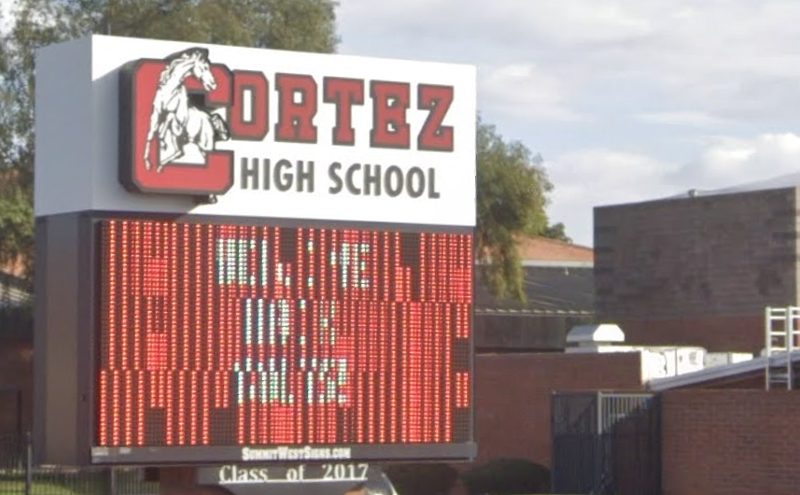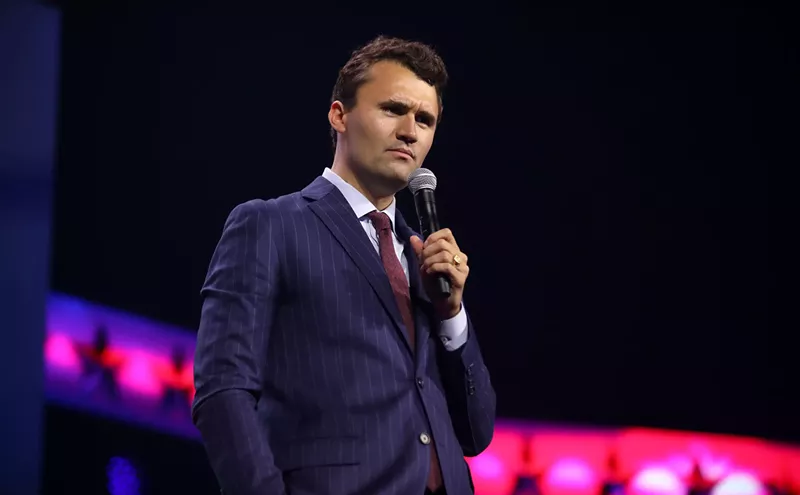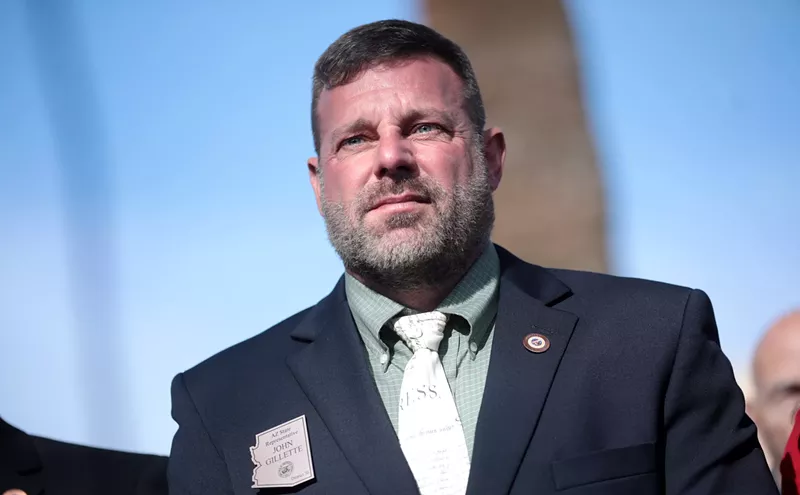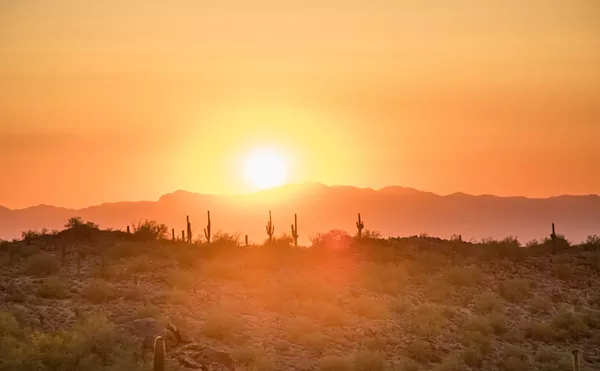Pinal County Attorney Lando Voyles states in a recent news release that marijuana usage has increased statewide because of "looser" marijuana laws that help drug cartels, but he can't or won't back up the claim.
He's the latest public official to use his and his staff's time to rail, on the public dime, against marijuana decriminalization.
The issue of elected officials utilizing their power and taxpayer-funded resources to influence an election caught the public's attention this month after Arizona Attorney General Mark Brnovich, in response to a question by Yavapai County Attorney Sheila Polk, issued an opinion on May 4 that such publicly funded political influence was acceptable, with some limitations.
The subsequent outcry by legal scholars, bloggers and columnists, and groups campaigning for marijuana legalization in Arizona, caused Brnovich to rethink his opinion. On May 14, the day after New Times published an article detailing how Polk had facilitated the transfer of $50,000 in RICO funds to a Prescott-area anti-legalization group, Brnovich withdrew his opinion from the legal domain.
Voyles, a young, first-term politician craves news media attention and enjoys taking potshots, so to speak, at the Pinal County Board of Supervisors. Either Voyles didn't get the memo about Brnovich's withdrawal of the May 4 opinion or doesn't care.
Tiffany Davila, Voyles' spokeswoman, sent New Times and other news outlets the May 20 news release from Voyles that she stated was about "marijuana usage and traffickers in Pinal County."
In the PDF attached to the email, Voyles announced the convictions and sentencings of 20 (he later corrected it to 17) "hilltop scouts pulled from the Pinal County mountaintops in three recent raids..."
The release failed to give the dates of the sentencings, the names of any of the defendants, or what the sentences were.
But his announcement coincidentally came at the same time as news of a big indoor-grow bust by the Maricopa County Sheriff's Office. That bust in itself was over-publicized by the Sheriff's Office, probably because Sheriff Joe Arpaio saw it as another potential distraction from the hearings over his alleged contempt of a federal judge and his rulings.
Arpaio's office touted this week's raid as the biggest-ever indoor growing operation in Maricopa County — 581 plants seized at one location and 784 seized at another address. Yet with the massive growth Phoenix has experienced over the years, "biggest-ever" of nearly everything gets announced here every few years.
The record also depends on how it's defined. After the 2012 bust of the Arizona Cannabis Society in El Mirage, a Phoenix police spokesman told New Times that about 900 plants were found growing in a single location.
But back to Voyles, who says Arpaio's pot bust "reconfirms" his stance on marijuana.
A contributing factor to "our marijuana problems remains those members of the Board of Supervisors, who continue to approve marijuana-related agenda items," he writes. Voyles "believes the county sits at a critical tipping point between losing the battle against marijuana and the criminal syndicates who continue to pedal [sic] the product. Statewide, a major factor for the increase in marijuana usage comes from the availability of those drugs."
This "increase in marijuana usage" makes it easier for drug cartels to find customers, he asserts. "The combinations of looser marijuana dispensary rules and grow site regulations, along with drug cartels and traffickers, creates a larger apparent need to the user and an easier sales pitch for the criminal syndicates. People laughed when I made this comment before, but after watching it play out today, it's not so funny."
The "laughing" reference seems to hail back to criticism of Facebook comments Voyles made in 2013.
"If you support pot, you support Mexican drug cartels. If you support pot, you support the killing of Americans," Voyles posted on Facebook on June 13, 2013, according to an op-ed published on TriValleyCentral.com by former city of Maricopa council-member Carl Diedrich.
Diedrich lambasted Voyles' spineless deletion of the Facebook replies to his Facebook post.
Voyles concludes his May 20 announcement by saying, "We continue to fight an uphill battle when the marijuana laws continue to be loosened."
Marijuana legalization has become a huge topic in Arizona, and it's pretty clear he's targeting the ongoing campaign by those who want to put a ballot initiative before voters in 2016 that would legalize marijuana. Proponents want to grant adults 21 and older the freedom to use, grow and buy marijuana legally.
Similar to the anti-marijuana efforts by Sheila Polk and Maricopa County Attorney Bill Montgomery, Voyles is clearly trying to influence the election. "Loosened" marijuana laws are a political issue, not a public-safety matter. None of these crusaders talks about loosened alcohol laws — they're trying to derail marijuana legalization out of personal bias. Polls show about half of Arizona voters would have no problem with marijuana legalization.
New Times contacted Tiffany Davila and Voyles to ask a couple of questions: Could Voyles provide any statistics that back up his claim of an increase in marijuana usage in Arizona? We've seen no such stat.
We also asked if Voyles believes that the state's estimated 500,000 marijuana users would prefer to deal with cartel members than to buy their marijuana over the counter legally.
Davila told us she'd get us some figures.
But then she emailed back with this incredibly obtuse reply by Voyles to our questions: "I refuse to allow the New Times to change the dialog from an issue of crime to their philosophical beliefs by responding to their questions based on their ideology and not actual facts."
The reply was so random, we had to ask Davila to confirm that she sent Voyles our two questions, and not someone else's questions. She didn't reply.
Of course, Voyles couldn't be bothered to call or email New Times himself. Diedrich was absolutely right about Voyles when he wrote, "Mr. Voyles is proving that he would rather just delete and ignore instead of answer the people that his oath swears him to serve."
When it comes to Voyles' stance on marijuana, there can be little doubt that many people are still laughing.
Email: Ray Stern
Follow Ray Stern on Twitter: @RayStern

Audio By Carbonatix
[
{
"name": "GPT - Billboard - Slot Inline - Content - Labeled - No Desktop",
"component": "21251496",
"insertPoint": "2",
"requiredCountToDisplay": "2"
},{
"name": "STN Player - Float - Mobile Only ",
"component": "21327862",
"insertPoint": "2",
"requiredCountToDisplay": "2"
},{
"name": "Editor Picks",
"component": "16759093",
"insertPoint": "4",
"requiredCountToDisplay": "1"
},{
"name": "Inline Links",
"component": "17980324",
"insertPoint": "8th",
"startingPoint": 8,
"requiredCountToDisplay": "7",
"maxInsertions": 25
},{
"name": "GPT - 2x Rectangles Desktop, Tower on Mobile - Labeled",
"component": "21934225",
"insertPoint": "8th",
"startingPoint": 8,
"requiredCountToDisplay": "7",
"maxInsertions": 25
},{
"name": "Inline Links",
"component": "17980324",
"insertPoint": "8th",
"startingPoint": 12,
"requiredCountToDisplay": "11",
"maxInsertions": 25
},{
"name": "GPT - Leaderboard to Tower - Slot Auto-select - Labeled",
"component": "17012245",
"insertPoint": "8th",
"startingPoint": 12,
"requiredCountToDisplay": "11",
"maxInsertions": 25
}
]











